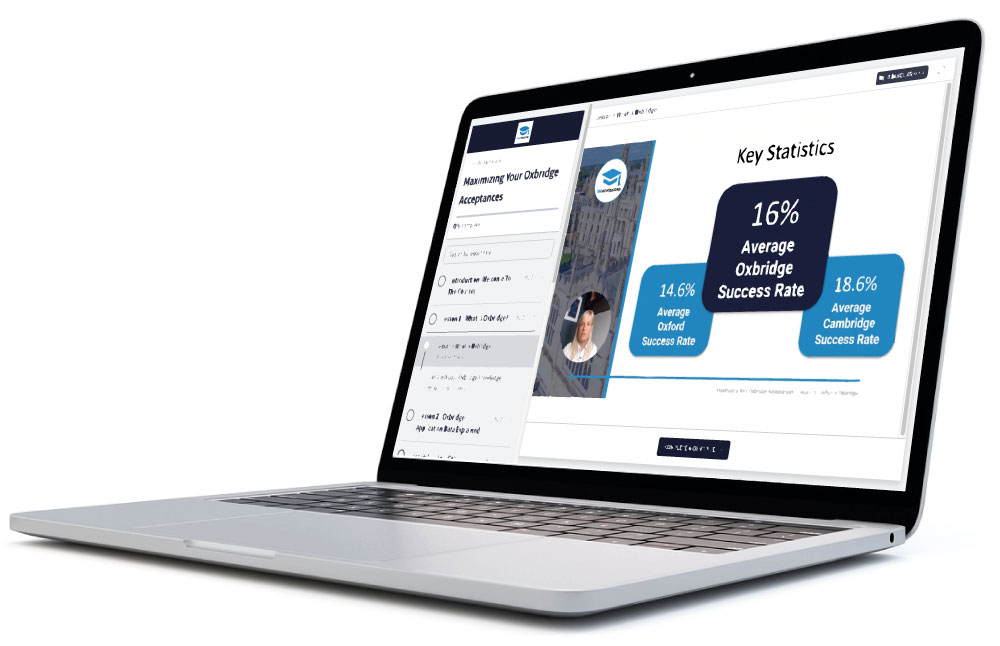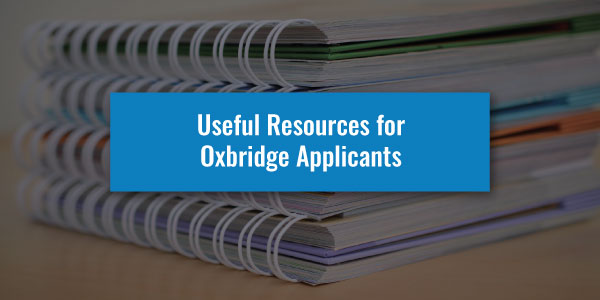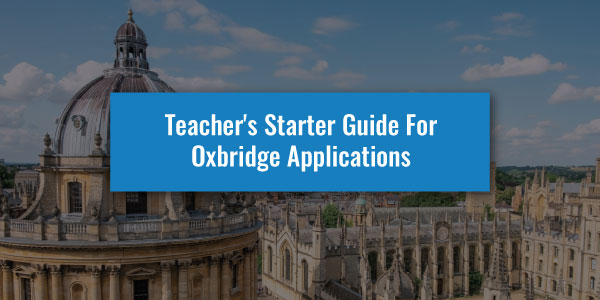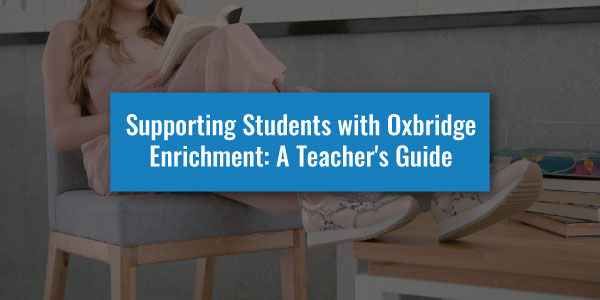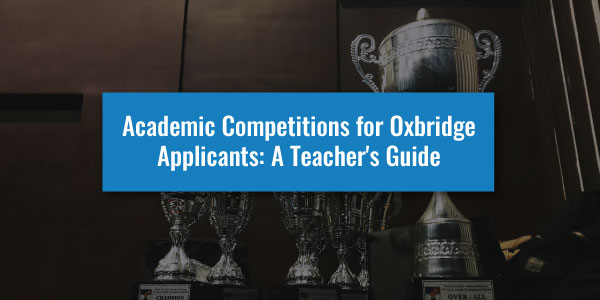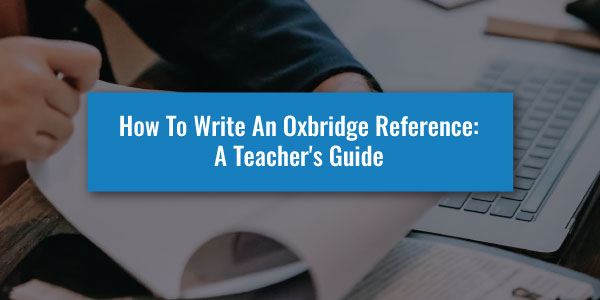The Oxbridge admissions process poses many challenges for applicants that test them on their various abilities and general character. These are all important steps of the process to ensure that Oxford and Cambridge only admit those who will excel in their rigorous but highly rewarding courses.
However, some applicants will face additional challenges during this process that will hinder their chances of success, even if they have the skills necessary to succeed at Oxbridge. These challenges can come from their background, location or other circumstances that may leave them disadvantaged when compared to their competition.
The University of Oxford and the University of Cambridge have each been aiming to level the playing field of their admissions process over the years to ensure that applicants with the highest potential have the best chance of being admitted rather than applicants within the best circumstances.
Each university now offers a range of support options for students facing difficulties with finances, disabilities and international admissions. This guide will take you through the many options available to those who meet the standards of Oxbridge but need support in order to be competitive.
Oxford University Bursaries & Scholarships
One of the most in-depth support options provided by both Oxbridge universities is their selection of bursaries and scholarships for applicants from low-income backgrounds. If you aren’t already aware of the difference between the two options, here is a brief explanation:
Bursaries: University bursaries are awarded to applicants who are facing financial difficulties in order to assist with course fees, living expenses or other financial obligations that students face. Recipients will typically be awarded a set amount or will receive an amount based on their household income, with the fund normally being non-repayable. Funding for these bursaries is usually provided by the government, organisations/charities or the universities themselves.
Scholarships: Scholarships are typically awarded to applicants who demonstrate exceptional academic potential, either through competitions, applications or general recognition from the university. Recipients will traditionally have all or the majority of their course fees covered alongside support with living expenses. Scholarship funding can come from educational institutions, private donors, foundations, corporations, and government agencies.
The University of Oxford offers a wide variety of both bursaries and scholarships. Here are some of the most popular examples available to your students:
Crankstart Scholarships
Despite being named a Scholarship, the Crankstart programme at Oxford functions more as a bursary for disadvantaged applicants. UK residents studying for their first undergraduate degree can apply for this programme if their household income falls below £32,500. as well as a variety of resources and opportunities to boost employability.
Applicants whose household income fall below £7,500 annually will be eligible to receive £5,800 per year to support living expenses. Meanwhile, applicants with a household income below £32,500 can receive £5,000. As well as financial support, recipients can access a variety of resources and opportunities to boost employability. Eligible applicants do not need to apply as they will be automatically awarded the bursary upon enrolment.
You can find further details about everything that Crankstart recipients have access to on the official Crankstart webpage.
Oxford Bursaries for students with Home fee status
UK and Republic of Ireland applicants from lower-income households who are not eligible for the Crankstart Scholarship, either due to higher household income or level of education, may instead be offered a non-repayable Oxford bursary. These bursaries depend on household income and range from £1,000 to £4,000.
| Yearly Household Income | Bursary Amount Received |
|---|---|
| Less that £25,000 | £4,000 |
| £25,001 – £32,500 | £3,500 |
| £32,501 – £37,500 | £3,000 |
| £37,501 – £42,875 | £2,000 |
| £42,876 – £50,000 | £1,000 |
Once again, applicants will not need to apply for these bursaries, provided they have completed a financial assessment by Oxford by May of their admission year (this is the same for the Crankstart Scholarship). Applicants will be notified if they are eligible for either support option by mid-September.
Oxford Travel Supplement for UK bursary holders
Those who live further than 80 miles away from Oxford and are receiving either of the previous bursaries will be eligible for a travel supplement between £200 and £500 depending on the distance of their home address.
Support for Applicants with Care Experience/No Family Support
Applicants who have experience in the care system or are without family support can receive a non-repayable bursary of up to £3000 per year, provided they have already taken out full government support available to them.
Financial Assistance to Meet Funding Shortfalls
Those who require financial assistance due to several reasons may be eligible for financial shortfall funding. Students will need to apply for this funding with full reasoning as to what financial support they require.
Oxford Scholarships
More specific Scholarships offered by Oxford include:
Bright Oceans Corporation Scholarship
Scholarship Award: Full course fees and annual grant for living expenses.
Application Deadline: 8th February
Requirements: Applicants must ordinarily be residents of mainland China.
Dr Ateh Jewel Foundation Awards
Scholarship Award: A £3,300 grant for living expenses in the first year of study.
Application Deadline: 14th June
Requirements: Applicants must be from disadvantaged backgrounds and be of Black African or Black Caribbean descent.
Hill Foundation Scholarship
Scholarship Award: Full course fees and annual grant for living expenses.
Application Deadline: 8th February
Requirements: Applicants must be nationals of the Russian Federation and wish to apply for a second undergraduate degree.
Palgrave Brown Scholarship
Scholarship Award: Annual grant for living expenses.
Application Deadline: 8th February
Requirements: Applicants must ordinarily be residents of one of a list of countries within Eastern Europe/Russia.
Palgrave Brown UK Scholarship
Scholarship Award: Annual grant for living expenses.
Application Deadline: 8th February
Requirements: Applicants must ordinarily be residents or educated within Norfolk or Suffolk.
Oxford Centre for Islamic Studies (OCIS) Undergraduate Scholarship
Scholarship Award: Full course fees and annual grant for living expenses.
Application Deadline: 8th February
Requirements: Applicants must be nationals of the UK and from an Islamic community. Applicants cannot be applying for Medicine or PGCE and cannot be applying for a second undergraduate degree.
Reach Oxford Scholarship
Scholarship Award: Full course fees, annual grant for living expenses and one return airfare annually.
Application Deadline: 8th February
Requirements: Applicants must be residents of a low-income country.
Simon and June Li Undergraduate Scholarship
Scholarship Award:Full course fees and annual grant for living expenses.
Application Deadline: 8th February
Requirements: Applicants must ordinarily be residents of one of the listed Asian countries.
You and your students can search for scholarships that meet their specific circumstances using Oxford’s scholarship search tool. External Scholarships can be searched for separately.

Claim Your FREE Oxbridge Applications Resource Pack
Gain access to our 12-Document Oxbridge Resource Pack, featuring the “How Can Oxbridge Support You?” student handout and many more helpful tools that cover the whole application process. The resource pack includes handouts, templates, lesson plans and much more, helping you prepare your students for their application. Fill out the form below and gain instant access.
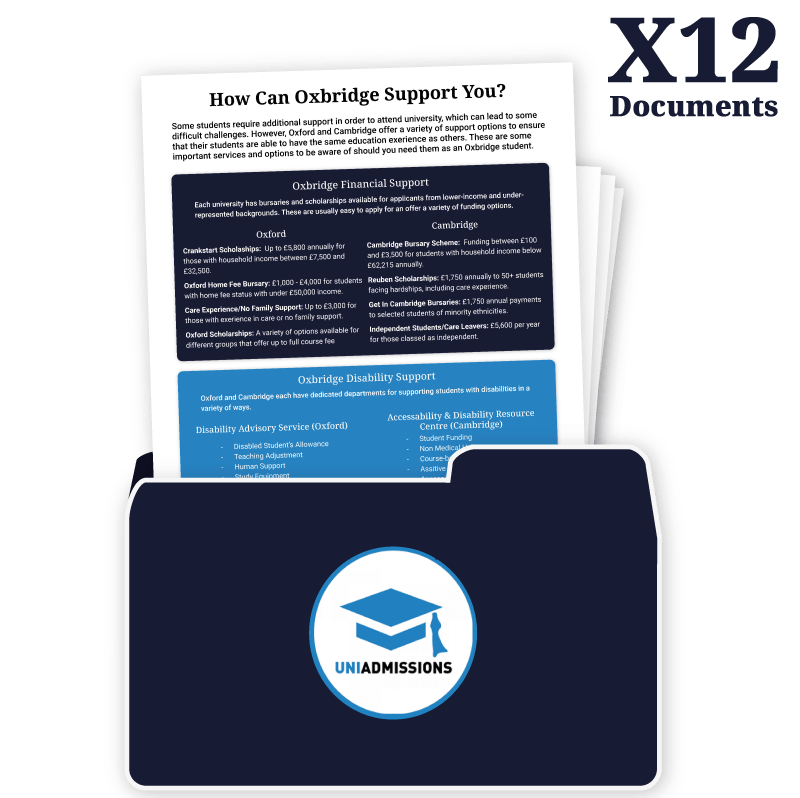
Cambridge University Bursaries & Scholarships
Cambridge does not have as wide a selection of financial support options available to applicants. However, the primary option that is available is versatile and assists many financially disadvantaged applicants.
Cambridge Bursary Scheme
This is the main bursary offered by Cambridge and provides non-repayable financial support to applicants from lower-income households (under £62,215 per year). Bursary amounts can range from £100 to £3,500 annually depending on income and are only eligible to those who have been offered a student finance loan.
Consideration is done automatically once a student has applied for their student loan, so if they are eligible they will not need to take any further action. This bursary can be awarded alongside any other bursaries or scholarships that the applicants may be awarded. Those who were eligible for free school lunches will also receive an additional £1,000 each year under the Education Premium.
Independent Students and Care Leavers
Those who are classed as independent by the regional funding body can receive £5,600 annually to support accommodation expenses during summer breaks. Some of the criteria an applicant could meet for this funding include financially supporting oneself for at least 3 years, having a dependent, being permanently estranged from parents and more. The full criteria for this funding are found on Cambridge’s website.
Care leavers can be awarded up to £8,350 annually thanks to the high-rate bursary, Education Premium and Reuben Scholarship.
Reuben Scholarships
This scholarship offers over 50 students £1,750 each year in funding. Recipients are evaluated based on various disadvantages and circumstances, with applicants who are within the care system being prioritised.
Factors that applicants are assessed on include household income, POLAR and Indices of Multiple Deprivation. These awards are spread out across all colleges at the university and are provided by the Reuben Foundation, which also grants access to a number of events for recipients.
Douglas Cashin Bursaries
Each year, two students who have received the Cambridge Bursary and are studying Classics with a Preliminary Year will be awarded an extra £1,750 each year. Each recipient should have no previous background in Classics and must agree to share details with the donor of this bursary for the sake of monitoring and communication.
Get In Cambridge Bursaries
Those from under-represented minority ethnicities can be eligible for a £1,750 annual payment through their studies. Cambridge states that ethnicities currently considered are Black, British Bangladeshi and British Pakistani. Recipients for these bursaries are spread across all subjects and colleges at Cambridge, with funding for these bursaries being provided by private donors.
Undergraduate Hardship Funding
The Undergraduate Hardship Fund is for applicants who have been unable to raise the necessary finances to effectively fund their studies due to mitigating circumstances. Applicants of this fund will be eligible to receive financial support of up to £3,500 in order to complete their studies at Cambridge.
All registered undergraduate students are eligible to apply for this fund via an application form, although applicants are expected to speak with their college tutors and review the application guidance and criteria. A Medical Support Fund is also available for those who have medical needs that will cause financial hardship. The application process for this funding is similar to the Hardship Funding.
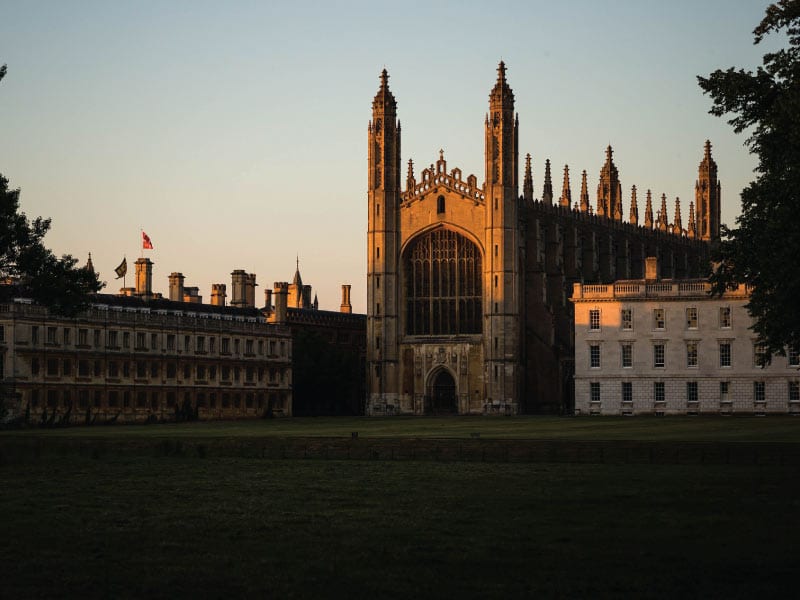
While these are the main financial support options offered by Oxbridge, remember that there are plenty of additional options for your students if they are not eligible for these, including the NHS Learning Support Fund and other third-party bursaries. Be sure to share these options with your students and encourage them to research additional options should they require support.
Become an Oxbridge expert with our free CPD-accredited course.
1
Includes 3 hours of content and knowledge quizzes.
2
Completely free for teachers and schools.
3
Upon completion, you will gain CPD points!
Oxbridge Support for Accessibility
For those with disabilities, the Oxbridge application process can be even more daunting as the fear of being disadvantaged compared to other applicants can lower their motivation to succeed. However, it is first important to note that no applicant should feel their application is being discriminated against due to a disability. If there are concerns that an applicant has been unfairly assessed due to any physical or mental condition, both universities have complaints and appeal departments that can assist your student in determining any discrimination throughout the admissions process.
Beyond this, both Oxford and Cambridge support applicants both in their application and in their studies when needed. Some examples of support that your students may have access to include:
Funding
Both universities have funds in place to support students with disabilities. Oxford has the Disabled Students’ Allowance, which is available for both undergraduates and graduate students. This funding can be used to cover the costs of travel, human support and specialist equipment required for study. Applicants are advised to apply as soon as an offer is received as the process of approval can take up to 14 weeks.
Cambridge offers funding via the Accessibility and Disability Resource Centre (ADRC). This fund works in the same way as the DSA and can be used for the same expenses. Both funds are available to both UK and international students, although those from overseas will need to undergo a different application process.
Admissions Test Support
For admissions tests that must be sat at a designated testing centre, the organisers of said tests provide a variety of options to ensure accessibility for all students. Firstly, all registered testing centres are required to pass strict accessibility guidelines.
Alterations to the paper/testing include large print papers, extra time, separate invigilation and additional software and hardware. All alterations must be requested beforehand, usually at the same time that a student is registered. In some cases (such as with CAAT tests), the registration must be handled by the student’s exams officer, meaning they will also need to request any access arrangements. Similar arrangements to these can be made for other in-person events, such as open days and interviews.
Welfare and Wellbeing
Both universities have specific departments that manage support for disabled students, as well as students with other welfare and well-being needs. At Oxford, this is the Disability Advisory Service (DAS), while Cambridge has the Accessibility and Disability Resource Centre (ADRC).
Both departments provide support with funding, university access arrangements, mental health support and much more. It is recommended by both universities that students inform these departments of their requirements after they have received an offer or disclose information about their disability in their application.
Support for International Applicants
Although being an international applicant isn’t at an application disadvantage in the same sense as the previous topics, the admissions process is still more difficult for those from overseas. Some support options are available for those from outside the UK, however, which include:
Funding
As we have already discussed, there are various bursaries and scholarships available for overseas applicants, particularly from Oxford. These range from general funding options to those reserved for nationals of specific countries. We suggest reading through our section on Bursaries or performing additional research to learn more about these options.
Online Guidance
Both Oxford and Cambridge have created in-depth guides that explain the process for international applications and study in the UK:
These guides are relevant to both those who live overseas and those who currently live/study in the UK but are not residents, so these guides may prove useful to some of your students.
Language Courses
Pre-sessional English Language courses are available at both Oxford and Cambridge for admitted students who would like to improve their English language skills before their studies begin.
Oxford’s pre-sessional languages course is a 6-week summer course that is taken online and is suitable for both undergraduates and postgraduates. This course is designed to improve students’ speaking and writing skills in order to prepare them for the academic side of their time at Oxford.
The Cambridge ADTIS pre-sessional course lasts 5 weeks and is held on campus in the weeks before regular teaching begins. This course prioritises academic skills to ensure that students have a good understanding of how to study at Cambridge while also improving their understanding of English.
Note that each of these courses has additional fees attached to them and are not required for international applicants to study at Oxbridge. These are designed to boost the skills of less confident students and to enhance the learning experience of those who are keen to get the most out of their time at university.
These are just a few of the many ways in which your students can be supported through their application and admission at Oxford and Cambridge. If you or your student believe that they may require assistance that has not been mentioned in this guide, be sure to research or contact the university directly to confirm if the option is available.
If your students feel they need additional support with their Oxbridge application, UniAdmissions offers a wide range of options to support them in all stages of the admissions process including Personal Statements, admissions tests and interviews. Learn how our Premium Oxbridge Programmes can support your school or learn more about the Oxbridge admissions process within our Teacher’s Hub.
Other Helpful Oxbridge Resources
Free CPD-Accredited Oxbridge Counsellor Course
This free online course is designed to equip you with the knowledge and skills needed to help your students secure a place at the world’s top universities. You’ll complete the course as an Oxbridge expert!
Teacher’s Oxbridge Learning Hub
Access all of our highly detailed written guides for teachers, as well as useful resources and information about our school support.
